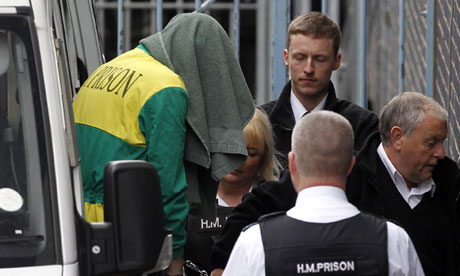
Some 23 years ago, a young child was brutally savaged by a pit bull terrier. Kenneth Baker, then home secretary, believed that Something Must Be Done. The tabloid press agreed. Enter the Dangerous Dogs Act 1991, banning the breeding, sale or exchange of pit bulls, Japanese tosas, dogo argentinos and fila brasileiros. The rest (or at least the act's overall failure) is history. It is a debacle to remember as David Cameron launches his war on internet pornography.
Mark Bridger, murderer of five-year-old April Jones, was addicted to child sex-abuse videos on the net. Mr Cameron is the loving father of a young family. He (in full agreement with the Daily Mail) wants something done. He is prime minister, which means that, notionally at least, he can do something.
But he is also a politician through a continuing, if slightly abating, economic crisis, which means that action he doesn't have to pay for, by giant multinational companies such as Google, which don't pay enough taxes, is better than more government spending. So, as of last week, the jawboning and threats of legislation began.
Henceforth, it seems, purchasers of new computers, and then owners of older kit, will have to "opt in" to receive pornography. "Poisonous websites" that "corrode childhood" won't be available at the click on a search engine. This seems like a sweeping clampdown – by warning and exhortation in the first place, by legislation if nothing happens. Since much of the content under attack is vile and degrading, who can argue with that? In political terms, it's a no-lose mini-crusade – like banning Japanese tosas. The only problem is that it swings a broad brush with redundant abandon.
Mark Bridger's example proves little. He's a sad, sickening one-off. Most of our European neighbours have a much lower incidence of paedophilia cases and do nothing to rein back their indigenous internet providers. Cause and effect in Britain have only shaky connections. Search engines already work overtime filtering and sifting filth: they may be weak on corporation tax – and freshly unpopular because of their avoidances – but it simply isn't true that you can put in a few buzz words and see human sewage fill your screen. Indeed, publicised moves against porn these days are a selling point for Google rivals. But, in reality, hardcore contacts are peer to peer, oozing under the radar. Demanding that Google end them in a magic trice is dogo argentinos policy making.
There's nothing wrong with concerned family debates about default settings on laptops (as long as you don't think choosing one makes your child safe). And there's public benefit, as well as political dividend, in keeping the issue high on every agenda. But beware the pit bull falls of recent experience.
What's pornography? The days since Mr Cameron launched his crusade at the NSPCC have seen it include Page 3, Straw Dogs and the "adult" channels of Sky. A brush far too broad – and a harbinger of reform so randomly targeted that, in the end, only lawyers may welcome or benefit from it.

